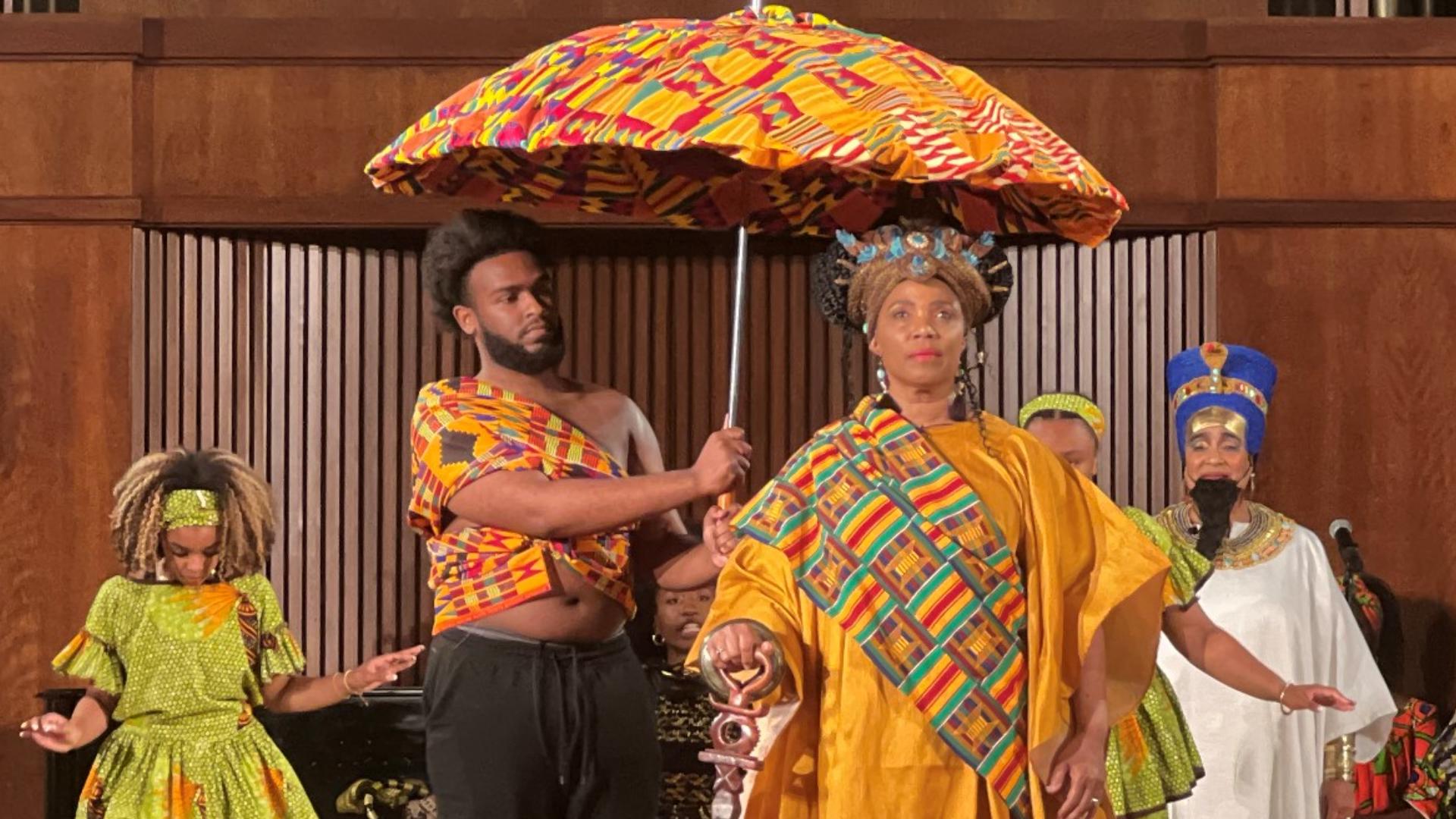ATLANTA — Spelman students took community members on what they called a “herstorical” journey of empowerment through African dance. The Department of Dance Performance and Choreography at Spelman presented the play “Royal Inspiration."
This was a story of women’s empowerment by song, dance, and monologue rooted in African culture and the African diaspora. The focus was on ancient and contemporary African queens. Prominent queens featured in the play included Auset, Pharaoh Hatshepsut, Queen Makeda, Queen Nzinga, Queen Mother Yaa Asantewaa, Harriet Tubman and Queen U'Nmi.
The cast of “Royal Inspiration” included a mix of Spelman African Dance students, faculty, alumni, and community members, including artist Akumba Ashanti.
All of the African queens featured in the play were re-imaged through costume. Spelman professor Dr. Shady Radical worked with students Bianca Moore, Zoe Starks, and Solomon Dobbfrom her costume design class to create the one-of-a-kind looks. The looks were completed with elaborately braided headdress pieces designed by master cosmetologist Shawna Lynn Dunning-Taylor of Phoenix Queen Stylze.
The artistry behind designs, contributing to the look and feel of the play, was a community effort. Several local organizations, including Ballethnic Dance Company, Georgia State University Theatre Department, Afrocentric Network, Densua's African Treasures, and industry professional Brittany-Nicole, stepped up to serve for the production that was free to the community.
Sis Omelika Kuumba, a professor of African dance at Spelman, wrote and directed the play. Kuumba has taught at the college for 25 years. During her tenure, Kuumba helped to found Giwayen Mata, an ensemble of vocals, percussion, and dance led by women.


The play embodied African art and storytelling in an entertaining way, but also stirred up emotions for some in the audience, including Dunning-Taylor.
She said the play “brought me back to my travels and studies of our history and speaking to my elders along with my mother of the importance of embracing who we are as a people."
"Remember who you are, keep it close to your heart, share it with others,” she continued.
Radical said she hopes the community embraces the message of empowerment.
“It allows future generations of women all the way to the babies who attend these shows to see themselves as big, bold, beautiful, and liberated. After all, isn’t that what we want for them,” said Radical.

